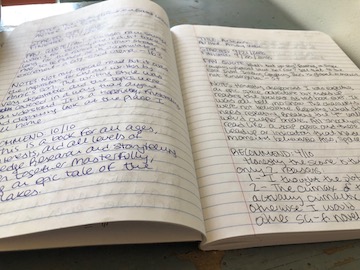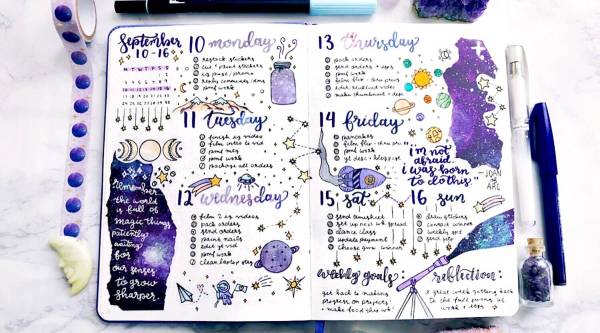
Embark on a transformative journey of self-discovery with these 10 powerful journaling prompts. Designed to ignite deep introspection, this article offers invaluable insights into your core values, beliefs, fears, childhood memories, and significant life events.
Delve into the depths of your dreams, passions, and talents as you examine your self-image and self-esteem. Reflect on your personal growth journey, unlocking the freedom to explore and embrace your truest self.
Prepare to embark on a path of profound self-awareness and empowerment.
Exploring Your Core Values
One of the most crucial steps in personal growth and development is exploring your own core values. Understanding personal values is essential as they serve as guiding principles that shape our decisions, actions, and overall sense of purpose. When we take the time to reflect on our values, we gain a deeper understanding of ourselves and what truly matters to us.
This exploration allows us to align our choices with our authentic selves and live a life that is in harmony with our values. Additionally, exploring personal strengths is equally important in this process. By recognizing and harnessing our unique strengths, we can leverage them to overcome challenges and achieve our goals.
Uncovering Your Beliefs and Assumptions
Our beliefs and assumptions shape our perspectives, guide our actions, and influence our outcomes.
Challenging limiting beliefs allows us to break free from self-imposed limitations and explore new possibilities.

Examining hidden assumptions helps us uncover biases and expand our understanding of ourselves and the world around us.
Challenging Limiting Beliefs
As we delve into the process of challenging limiting beliefs, it is important to uncover and examine our deeply ingrained beliefs and assumptions. Confronting negative thoughts and changing limiting beliefs can be a transformative journey towards personal growth and freedom.
Here are four essential steps to help you in this process:
Self-reflection: Take the time to reflect on your beliefs and assumptions. Question their origins and whether they still serve you.
Awareness: Notice when limiting beliefs arise. Pay attention to the thoughts and feelings associated with them. Recognize that they are not absolute truths, but rather conditioned patterns of thinking.
Challenge: Question the validity of your limiting beliefs. Look for evidence that supports alternative perspectives. Replace negative self-talk with positive affirmations.
Practice: Consistently challenge and reframe your limiting beliefs. Engage in activities that reinforce new, empowering beliefs. Surround yourself with positive influences and seek support when needed.

Examining Hidden Assumptions
To gain a deeper understanding of oneself, it is essential to examine hidden assumptions and uncover the beliefs and assumptions that shape our thoughts and actions. Exploring ingrained biases and overcoming societal conditioning are crucial steps in this process. Often, our beliefs and assumptions are deeply ingrained within us, influenced by our upbringing, culture, and experiences.
These hidden assumptions can limit our perspectives, hinder personal growth, and perpetuate harmful patterns of behavior. By bringing these assumptions to the surface and examining them critically, we can challenge their validity and make conscious choices about how we want to think and act.
Journaling can be a powerful tool for this exploration, allowing us to reflect on our thoughts and beliefs, identify any biases we may hold, and work towards aligning our actions with our true values and aspirations. Through this process, we can free ourselves from the constraints of societal conditioning and cultivate greater personal freedom.
Cultivating Empowering Mindsets
How can we uncover our beliefs and assumptions to cultivate empowering mindsets?
Cultivating empowering mindsets requires a deep understanding of our own beliefs and assumptions. By uncovering these underlying beliefs, we can challenge and reshape them to build resilience and create a more empowering narrative for ourselves. Here are four steps to help you on this journey:
Self-reflection: Take the time to reflect on your thoughts, emotions, and patterns of behavior. Journaling can be a powerful tool to explore your beliefs and assumptions.
Questioning: Ask yourself why you hold certain beliefs and assumptions. Are they based on evidence or inherited from others? Questioning allows you to challenge these beliefs and open up to new possibilities.

Empowering affirmations: Replace limiting beliefs with empowering affirmations. Affirmations help reprogram your subconscious mind, reinforcing positive beliefs and attitudes.
Seeking alternative perspectives: Engage in conversations with diverse individuals and expose yourself to different viewpoints. This helps broaden your understanding and challenges any narrow assumptions you may hold.
Confronting Your Fears and Limiting Beliefs
One can embark on a transformative journey of self-discovery by confronting their fears and challenging their limiting beliefs. Facing anxieties and overcoming doubts are essential steps in breaking free from the chains that hold us back.
Our fears and limiting beliefs often stem from past experiences or societal conditioning, causing us to doubt our abilities and potential. However, by daring to confront these fears head-on, we open ourselves up to new possibilities and personal growth.
Journaling can be a powerful tool in this process, allowing us to explore the root causes of our fears and limiting beliefs, and to challenge them through self-reflection and introspection. Through this process, we can gain a deeper understanding of ourselves and develop the resilience and courage needed to overcome our fears and embrace our true potential.
Exploring Childhood Memories and Their Impact
Our childhood memories hold a deep emotional significance that can shape our beliefs, behaviors, and relationships in adulthood.
Exploring these memories can provide valuable insights into the hidden traumas and experiences that have had a lasting impact on our lives.

Childhood Memories' Emotional Significance
While exploring the emotional significance of childhood memories, one can gain a deeper understanding of their impact on personal growth and development. Childhood memories hold a profound power to shape our beliefs, emotions, and behaviors, even into adulthood. Here are four insights into the emotional significance of childhood memories:
Emotional Healing: Reflecting on childhood memories can provide an opportunity for emotional healing. By revisiting and processing past experiences, we can release emotional wounds and find closure.
Understanding Triggers: Childhood memories often hold the key to understanding our triggers and patterns of behavior. Exploring these memories can help us identify the root causes of emotional reactions and develop healthier coping mechanisms.
Unconscious Beliefs: Our childhood memories often form the foundation of our beliefs about ourselves and the world. By examining these memories, we can uncover any limiting beliefs and work towards replacing them with empowering ones.
Nurturing Inner Child: Revisiting childhood memories allows us to reconnect with our inner child and provide the love, care, and validation they may have missed. This nurturing process can lead to greater self-acceptance and emotional well-being.
Uncovering Hidden Childhood Traumas
Delving into the depths of our subconscious minds and excavating buried childhood memories can reveal the hidden traumas that continue to impact our lives today. Childhood traumas, whether overt or subtle, can shape our beliefs, behaviors, and emotional well-being. Uncovering these hidden traumas is an essential part of the healing process, as it allows us to understand the root causes of our struggles and make meaning out of our experiences.
Exploring childhood memories and their impact requires a gentle and compassionate approach. Journaling can be a powerful tool to navigate this process, as it provides a safe space to express and reflect on our emotions. By writing about our childhood experiences, we can begin to unravel the coping mechanisms we developed as a response to those traumas. This self-reflection enables us to gain insight into how these coping mechanisms may no longer serve us and explore healthier alternatives.

As we uncover and acknowledge our hidden childhood traumas, we can begin the journey of healing and transforming our lives. Through journaling, we can cultivate self-awareness, self-compassion, and forgiveness, paving the way for a brighter and more liberated future.
Reflecting on Significant Life Events
When examining pivotal life moments, it is important to reflect on the compound effects they have had on our personal growth and development. These significant events have the power to shape us, challenge us, and ultimately transform us into the individuals we are today. Reflecting on these moments allows us to gain a deeper understanding of ourselves and the world around us.
Here are four reasons why reflecting on significant life events is crucial for personal growth:
Self-awareness: By examining these events, we become more aware of our strengths, weaknesses, and patterns of behavior.
Gratitude: Reflecting on these moments helps us appreciate the lessons we have learned and the growth we have experienced.
Perspective: It allows us to gain new insights and understand the bigger picture of our lives.
Empowerment: Reflecting on these events helps us to take control of our narratives and make intentional choices moving forward.

Examining Your Relationships and Connections
Furthermore, understanding the dynamics of your relationships and connections is paramount in fostering personal growth and deepening emotional intelligence. Exploring interpersonal dynamics allows us to gain insights into the patterns and behaviors that shape our connections with others.
By evaluating emotional needs, we can identify areas where we may be lacking fulfillment or experiencing conflict. Journaling prompts can help us delve deeper into these areas, asking questions such as:
- What qualities do I seek in my relationships?
- How do my relationships impact my overall well-being?
- Are there any toxic or unhealthy patterns that I should address?
- What boundaries do I need to set to ensure healthy connections?
Through introspection and reflection, we can enhance our self-awareness and make conscious choices that nurture positive relationships and support our emotional well-being.
Investigating Your Dreams and Aspirations
Exploring your dreams and aspirations can provide valuable insights into your passions and motivations for personal growth. Understanding your dreams allows you to uncover hidden desires and gain clarity about what truly fulfills you.
Here are four journaling prompts to help you delve deeper into your aspirations:
What are your wildest dreams? Take a moment to imagine a life without limitations. What would you do, be, or achieve if anything were possible?
What recurring dreams or themes do you have? Consider any patterns or symbols that may hold significance. These dreams often hold messages or insights about your subconscious desires.

What steps can you take to turn your dreams into reality? Break down your aspirations into actionable goals and create a plan to start manifesting them.
How do your dreams align with your values? Reflect on whether your aspirations are in alignment with your core beliefs and principles. Ensuring this alignment will bring a sense of purpose and fulfillment to your journey.
Uncovering Your Passions and Talents
Uncovering our passions and talents is a journey of self-discovery that can lead to a sense of fulfillment and purpose in life. Often, our hidden talents lie beneath the surface, waiting to be explored and nurtured.
However, when it comes to pursuing our passions, we may find ourselves torn between following our hearts and being practical.
Hidden Talents Discovered
Identifying and harnessing your latent abilities can lead to the discovery of hidden talents that can shape your passions and propel you towards success. Unleashing your potential and exploring your interests are essential steps in this journey of self-discovery. Here are four ways in which uncovering your hidden talents can transform your life:
Self-Reflection: Take the time to reflect on your strengths, interests, and experiences. Look for patterns and connections that can reveal hidden talents waiting to be discovered.
Experimentation: Step out of your comfort zone and try new things. Explore different hobbies, activities, or even career paths. You never know what hidden talents you may uncover along the way.

Seek Feedback: Reach out to trusted friends, mentors, or professionals and ask for their honest feedback. Sometimes, others can see our strengths and talents more clearly than we can ourselves.
Embrace Growth Mindset: Adopt a growth mindset and believe in your ability to learn and develop new skills. Embracing challenges and setbacks as opportunities for growth will help you uncover hidden talents and reach your full potential.
Passion Vs. Practicality
Evaluating the balance between passion and practicality is crucial for uncovering and cultivating your innate talents. In the pursuit of following your dreams, it is essential to strike a delicate balance between passion and practicality.
Passion fuels our desires and ignites our creativity, while practicality brings a sense of stability and security. It is easy to get caught up in the romantic notion of pursuing our passions without considering the practical aspects of life. However, blindly following our dreams without practicality can lead to disappointment and frustration.
On the other hand, solely focusing on practicality can stifle our true passions and leave us feeling unfulfilled. By finding a harmonious blend of passion and practicality, we can uncover our true talents and create a fulfilling life that aligns with our deepest desires.
Examining Your Self-Image and Self-Esteem
Self-reflection is a crucial step in understanding and improving one's self-image and self-esteem. It requires delving deep within ourselves to explore our self-worth and build confidence. To initiate this process, consider the following prompts:
Question the origin: Reflect on where your self-image and self-esteem originated from. Was it influenced by societal standards or the opinions of others? Understanding the source can help you challenge and redefine it.

Identify limiting beliefs: Uncover any negative beliefs you hold about yourself. Are they accurate or simply ingrained perceptions? Recognizing and challenging these beliefs can help you develop a more positive self-image.
Celebrate strengths: Take time to acknowledge and appreciate your unique strengths and qualities. Recognizing your abilities can boost your self-esteem and foster a more positive self-image.
Practice self-compassion: Treat yourself with kindness and compassion. Embrace imperfections and learn from mistakes, allowing yourself to grow and improve.
Reflecting on Your Personal Growth Journey
Throughout your personal growth journey, you can gain valuable insights by looking back on the experiences that have shaped you and the lessons you have learned along the way.
Reflecting on your personal growth journey allows you to examine your personal strengths and acknowledge the progress you have made. It gives you the opportunity to celebrate your accomplishments and recognize the challenges you have overcome.
By examining your personal strengths, you can build upon them and use them as a foundation for setting future goals.
Reflecting on your journey also helps you identify areas where you can continue to grow and improve. It allows you to gain a deeper understanding of yourself and your desires, enabling you to set meaningful and fulfilling goals for the future.

Frequently Asked Questions
How Can Journaling Help Me Explore My Core Values?
Journaling can be a valuable tool for exploring one's core values. Through self-reflection techniques, individuals can delve deeper into their beliefs, priorities, and principles, gaining clarity and understanding of what truly matters to them.
What Techniques Can I Use to Uncover My Beliefs and Assumptions?
Uncovering assumptions and challenging beliefs are key techniques for self-discovery. By journaling, individuals can delve into their thoughts and explore the underlying beliefs and assumptions that shape their perspectives, leading to deeper self-awareness and personal growth.
How Can Journaling Help Me Confront My Fears and Limiting Beliefs?
Journaling can be a powerful tool for confronting fears and challenging limiting beliefs. By putting our thoughts and emotions on paper, we gain clarity and insight, enabling us to examine and overcome the barriers that hold us back.
What Impact Do Childhood Memories Have on Our Adult Lives, and How Can Journaling Help Explore This?
Childhood memories can greatly impact our adult lives, often influencing our beliefs, behaviors, and mental health. Journaling provides a therapeutic outlet for exploring and processing these memories, allowing for self-discovery and personal growth.
How Can Journaling Help Me Reflect on Significant Life Events and Gain Insights From Them?
Reflecting on past experiences through journaling provides an opportunity to gain insights and discover hidden emotions. By delving into significant life events, individuals can explore their thoughts and feelings, leading to personal growth and self-discovery.
 Writing TipsCreative WritingJournalingSketching TechniquesBuying GuidesPrivacy PolicyTerms And Conditions
Writing TipsCreative WritingJournalingSketching TechniquesBuying GuidesPrivacy PolicyTerms And Conditions
